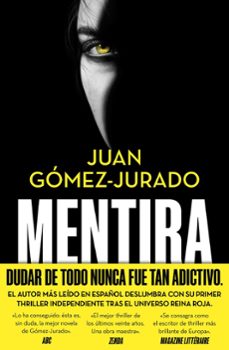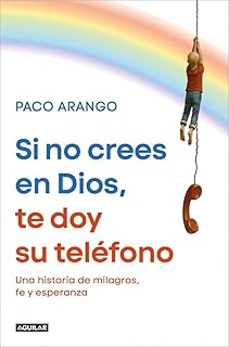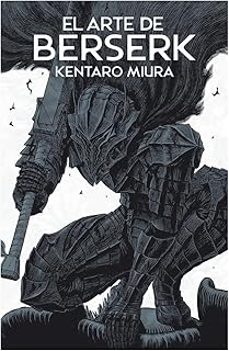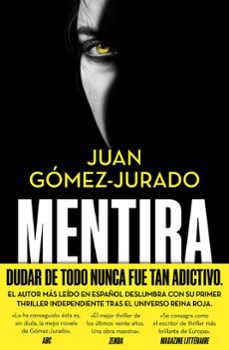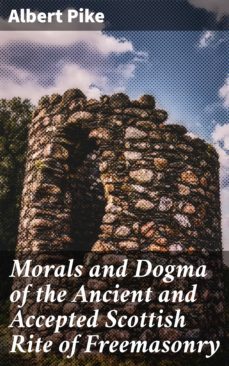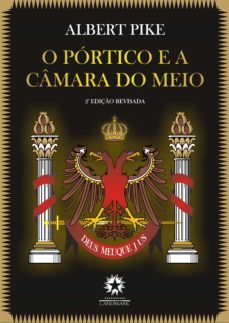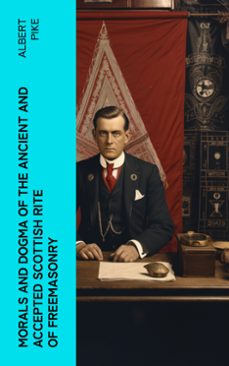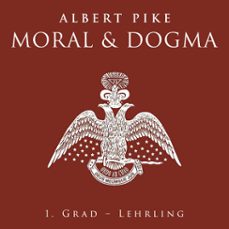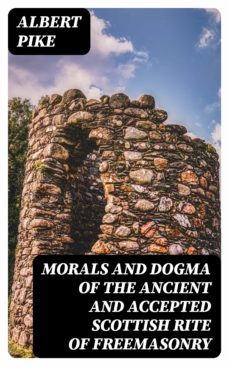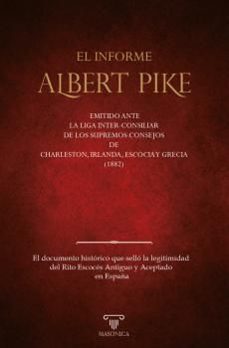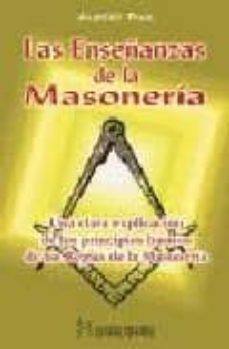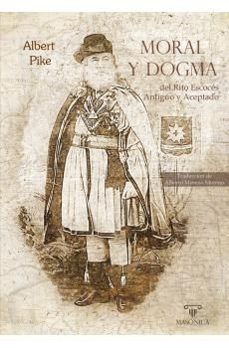Imprescindibles
Más vendidos Libros más leídos eBooks más leídos Todos los libros Todos los libros Autores destacados Series y sagas
Recomendados Libros recomendados Autores destacados Libros que inspiran Vidas con historia LGTBIQ+ English books
Ficción
Literatura Contemporánea Estudios literarios Clásicos Cuentos Poesía Teatro Libros de bolsillo Sagas literarias
Géneros literarios Novela romántica y erótica Novela negra Novela histórica Narrativa fantástica Novela de ciencia ficción Novela de terror Narrativa de humor Narrativa de viajes
No Ficción
Ciencias y tecnología Biología Ciencias Ciencias naturales Divulgación científica Informática Ingeniería Matemáticas Medicina Salud y dietas Formación Idiomas Estilo de vida Libros de Cocina Guías de viaje Narrativa de viajes Deportes Libros de Juegos Manualidades
Humanidades Autoayuda y espiritualidad Ciencias humanas Derecho Economía y Empresa Psicología y Pedagogía Filosofía Sociología Filología Biblioteconomía Estudios filológicos Estudios lingüísticos Estudios literarios Historia y crítica de la Literatura
Infantil
Juvenil
#Jóvenes lectores Narrativa juvenil Clásicos adaptados Libros Wattpad Libros Booktok Libros de influencers Libros de Youtubers Libros Spicy Juveniles Libros LGTBIQ+ Temas sociales Libros ciencia ficción Libros de acción y aventura Cómic y Manga Juvenil Cómic Juvenil Manga Shonen Manga Shojo Autores destacados Jennifer L. Armentrout Eloy Moreno Nerea Llanes Hannah Nicole Maehrer
Libros de fantasía Cozy Fantasy Dark academia Hadas y Fae Romantasy Royal Fantasy Urban Fantasy Vampiros y hombres lobo Otros Misterio y terror Cozy mistery Policiaca Spooky Terror Thriller y suspense Otros
Libros románticos y de amor Dark Romance Clean Romance Cowboy Romance Mafia y amor Romance dramatico Romcom Sport Romance Otros Clichés Enemies to Lovers Friends to Lovers Hermanastros Slow Burn Fake Dating Triángulo amoroso
Cómic y Manga
Novela gráfica Novela gráfica americana Novela gráfica europea Novela gráfica de otros países Personajes, series y sagas Series y sagas Star Wars Superhéroes Cómics DC Cómics Marvel Cómics otros superhéroes Cómics Valiant
Books in English
Books in English Fiction Non Fiction Comic Teen & Young Adult Main Authors Ken Follett Agatha Christie Stephen King Jane Austen Maggie O’Farrell On sale
Books in English for Young Adults Age 13+ Age 15+ Young Adult Authors Rebecca Yarros Sarah J. Maas Brandon Sanderson Ali Hazelwood Alice Oseman
Audiolibros
Literatura Contemporánea Narrativa fantástica Novela de ciencia ficción Novela de terror Novela histórica Novela negra Novela romántica y erótica Historia Historia universal
Humanidades Autoayuda y espiritualidad Ciencias humanas Economía y empresa Psicología y pedagogía Filosofía Infantil Audiolibros infantiles
Ciencia y tecnología Ciencias naturales Divulgación científica Medicina Salud y dietas Arte Cine Música Historia del arte
eBooks
Literatura Contemporánea Narrativa fantástica Novela de ciencia ficción Novela de terror Novela histórica Novela negra Novela romántica y erótica Juvenil Más de 13 años Más de 15 años Infantil eBooks infantiles
Humanidades Autoayuda y espiritualidad Ciencias humanas Economía y Empresa Psicología y Pedagogía Filosofía Historia Historia de España Historia Universal Arte Cine Música Historia del arte
Ciencia y tecnología Ciencias naturales Divulgación científica Medicina Salud y dietas Filología Estudios lingüísticos Estudios literarios Historia y crítica de la Literatura Estilo de vida Cocina Guías de viaje Ocio y deportes
ALBERT PIKE
Recibe novedades de ALBERT PIKE directamente en tu email
Filtros
Del 1 al 8 de 8
Good Press 4057664120663
In "Morals and Dogma of the Ancient and Accepted Scottish Rite of Freemasonry," Albert Pike explores the intricate relationship between morality, philosophy, and Freemasonry, presenting a comprehensive examination of its esoteric principles. Written in an eloquent and sometimes archaic style, the text delves into the historical roots and ethical teachings of Freemasonry while emphasizing the importance of personal enlightenment and self-improvement. Pike meticulously references various traditionsfrom ancient religions to contemporary philosophical thoughtcrafting a layered narrative that invites contemplation of the spiritual journey one undertakes within the Masonic context. Albert Pike was a prominent 19th-century American attorney, soldier, and writer who became deeply involved in Freemasonry, ultimately serving as a Sovereign Grand Commander of the Scottish Rite. His extensive knowledge of various religious and philosophical traditions, coupled with his rich literary background, informed his desire to articulate the foundational doctrines of Freemasonry. This work is not merely an exposition of Masonic beliefs; rather, it reflects Pikes commitment to elevate moral thought and spiritual growth among its practitioners. For anyone intrigued by the complexities of Freemasonry or the underlying philosophy of ethical conduct, Pikes "Morals and Dogma" serves as an essential read. It challenges readers to engage critically with their own beliefs and moral frameworks, making it a valuable resource for both Masons and seekers of wisdom alike.In this enriched edition, we have carefully created added value for your reading experience:- A succinct Introduction situates the works timeless appeal and themes.- The Synopsis outlines the central plot, highlighting key developments without spoiling critical twists.- A detailed Historical Context immerses you in the eras events and influences that shaped the writing.- A thorough Analysis dissects symbols, motifs, and character arcs to unearth underlying meanings.- Reflection questions prompt you to engage personally with the works messages, connecting them to modern life.- Handpicked Memorable Quotes shine a spotlight on moments of literary brilliance.- Interactive footnotes clarify unusual references, historical allusions, and archaic phrases for an effortless, more informed read.
Ver más
eBook
Landmark 9788588781702
A Maçonaria sempre tem inquietado o imaginário popular, pois, ainda hoje, é uma das mais misteriosas Instituições. Albert Pike, um dos mais importantes e eruditos Maçons da História e ex-Soberano Gra
Ver más
eBook
e-artnow 4066339551480
"Morals and Dogma of the Ancient and Accepted Scottish Rite of Freemasonry" by Albert Pike. Published by e-artnow. e-artnow publishes a wide range of titles that encompasses every genre. From well-known classics & literary fiction and non-fiction to forgottenor yet undiscovered gemsof world literature, we issue the books that need to be read. Each e-artnow edition has been meticulously edited and formatted to boost readability for all e-readers and devices. Our goal is to produce eBooks that are user-friendly and accessible to everyone in a high-quality digital format.
Ver más
eBook
GD Publishing 9783691494242
Moral und Dogma von Albert Pike gilt als eines der einflussreichsten Werke der Freimaurerei und philosophischen Esoterik. Erstmals 1871 veroffentlicht, bietet es einen tiefen Einblick in die moralischen, symbolischen und spirituellen Grundlagen der Freimaurerei. Pike verbindet in diesem Werk alte Weisheiten, religiose und mystische Traditionen sowie ethische Grundsatze und zeigt, wie Symbole und Rituale universelle Wahrheiten widerspiegeln.Das Buch behandelt Themen wie Tugend, Pflicht, Wahrheit, Gerechtigkeit und die Suche nach Erkenntnis. Es verknupft westliche und ostliche Philosophien, bezieht sich auf Mythologie, Religionen und antike Mysterienkulte und regt den Leser an, uber den Sinn des Lebens, menschliche Verantwortung und spirituelles Wachstum nachzudenken."Moral und Dogma" ist mehr als ein freimaurerisches Handbuch es ist eine zeitlose Abhandlung uber die Entwicklung des menschlichen Geistes und die Suche nach innerer Freiheit. Dieses Werk fordert dazu auf, hinter die Oberflache zu blicken, Symbole zu verstehen und das eigene Leben nach hoheren Prinzipien auszurichten.Ideal fur Horer, die sich fur Philosophie, Esoterik, symbolisches Denken und die groen Fragen der Menschheit interessieren.
Ver más
Audiolibro
DigiCat 8596547251996
In "Morals and Dogma of the Ancient and Accepted Scottish Rite of Freemasonry," Albert Pike presents a profound exploration into the philosophical and ethical underpinnings of Freemasonry. Written in a highly intricate literary style, characterized by its use of allegory and symbolism, this work dissects the moral complexities inherent in human existence, drawing on various religious and philosophical traditions. Pikes meticulous analysis situates Masonic teachings within a broader intellectual landscape, revealing the interconnectedness of knowledge streams from ancient wisdom to contemporary moral questions. This text serves as both a guide for Masonic initiates and a scholarly resource for those interested in the esoteric dimensions of Western mysticism. Albert Pike, a prominent 19th-century American attorney and writer, was deeply involved in the Masonic fraternity and its traditions. His background in law, philosophy, and his interests in metaphysical subjects informed his approach to Freemasonry. Pikes commitment to the principles of liberty and the pursuit of knowledge led him to write this comprehensive tome, aiming to present a cohesive understanding of Masonic ideology, transcending mere ritualistic practice. His efforts came at a time when the structure of organized religion and individual spirituality were in transition, making this work both timely and transcendental. For anyone interested in the philosophical foundations of Freemasonry or the broader implications of moral inquiry, "Morals and Dogma" is an indispensable text. Pikes nuanced writing offers valuable insights not only into the Masonic tradition but also into the universal quest for ethical understanding. Delve into this scholarly work to discover the profound wisdom that has influenced countless seekers of truth and self-knowledge.In this enriched edition, we have carefully created added value for your reading experience:- A succinct Introduction situates the works timeless appeal and themes.- The Synopsis outlines the central plot, highlighting key developments without spoiling critical twists.- A detailed Historical Context immerses you in the eras events and influences that shaped the writing.- A thorough Analysis dissects symbols, motifs, and character arcs to unearth underlying meanings.- Reflection questions prompt you to engage personally with the works messages, connecting them to modern life.- Handpicked Memorable Quotes shine a spotlight on moments of literary brilliance.- Interactive footnotes clarify unusual references, historical allusions, and archaic phrases for an effortless, more informed read.
Ver más
eBook
MASONICA.ES 9791387560461
En el otoño de 1882, Albert Pike -figura monumental de la masonería universal, Soberano Gran Comendador del Supremo Consejo de la Jurisdicción Sur de los Estados Unidos- emitió un informe trascendental que marcaria un hito en la historia masonica de España. Con erudicion, rigor juridico y una minuciosa revision de los hechos, Pike evaluo la legitimidad y continuidad del Supremo Consejo del Gran Oriente de España, sumido desde años atras en intensas disputas internas y externas. Su analisis, sustentado en cronologias, testimonios y la doctrina masonica internacional, culmino con un reconocimiento oficial que, junto con el apoyo de Grecia, Escocia e Irlanda, sello la posicion de la masoneria escocesa española en el concierto mundial. Este documento no es solo una pieza juridica y diplomatica, sino tambien un testimonio de la vision de Pike sobre la regularidad, la autoridad y la unidad en el Rito Escoces Antiguo y Aceptado. A traves de sus paginas se revive una epoca de tensiones, negociaciones y decisiones que definieron la estructura masonica en la peninsula iberica. Un documento imprescindible para historiadores, masones y estudiosos de las instituciones iniciaticas, que revela como la pluma de un solo hombre pudo influir en el destino de una nacion masonica.
Ver más
Tapa blanda
HUMANITAS 9788479103323
La Masonería, tal como la veía Albert Pike, es la moralidad fundada en la fe y enseñada mediante símbolos. No es una religión, sino un culto en el que todos los hombres buenos se pueden unir, siendo su objetivo beneficiar a la humanidad fisica, social y espiritualmente, mediante la ayuda a las demas personas para cultivar la libertad, la amistad y el caracter. Este es el credo Masonico: Cree en la benevolencia, sabiduria y justicia infinitas de Dios; Espera el Triunfo final del Bien sobre el Mal, y la Armonia Perfecta como resultado final de todas las concordias y discordias del Universo; y Se Caritativo como Dios lo es, hacia la incredulidad, los errores, los disparates y las imperfecciones de la humanidad, porque todos somos una Gran Hermandad.
Ver más
Tapa blanda
MASONICA.ES 9788419044570
Moral y Dogma, la monumental obra de Albert Pike, es uno de los textos fundamentales del pensamiento masónico del Rito Escocés Antiguo y Aceptado. En sus páginas se despliega una profunda síntesis de filosofia, simbolismo y espiritualidad, explorando el sentido iniciatico de cada grado. Nuestra edicion ofrece la mejor traduccion al español disponible, clara, rigurosa y fiel al original. Una obra imprescindible para todo mason que quiera comprender la riqueza doctrinal y esoterica del rito. Albert Pike (18091891) fue una de las figuras mas destacadas de la masoneria del siglo XIX y una referencia ineludible del Rito Escoces Antiguo y Aceptado. Nacido en Boston, fue jurista, militar, poeta, linguista y un profundo estudioso de las religiones comparadas, la filosofia y los sistemas simbolicos. Su vasta erudicion se plasmo en Moral y Dogma, obra monumental que reconfiguro la estructura ritual y doctrinal del Rito Escoces en los Estados Unidos, y que sigue siendo uno de los textos mas influyentes y debatidos de la tradicion masonica. Como Soberano Gran Comendador del Supremo Consejo del Sur durante mas de tres decadas, Pike defendio una vision de la masoneria como escuela filosofica y espiritual, profundamente etica, alejandola de toda banalizacion o superficialidad. Su legado permanece vigente por la profundidad con la que articulo simbolos antiguos, ideas esotericas y principios universales.
Ver más
Tapa dura
Del 1 al 8 de 8

